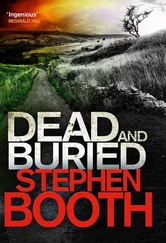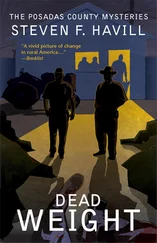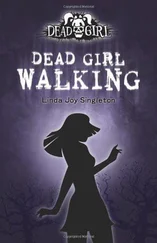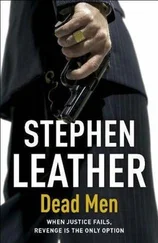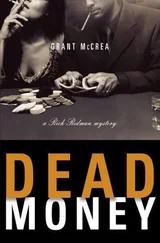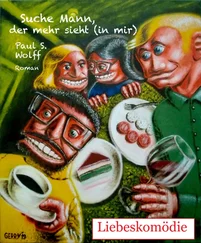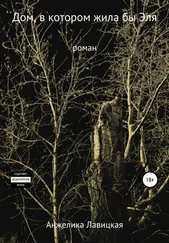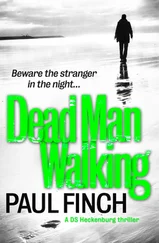There’s better than the Bones, but Fort Hammer’s generally crappy. The city used to have a manufacturing base and a big insurance industry, but when hard times hit, it was just like that little old lady on the commercial who’d fallen and couldn’t get up. You couldn’t blame anyone here. The citizens were all doing exactly the same things we did during the boom years. But sometimes it rains, and sometimes it rains hard.
These days Fort Hammer’s two big claims to fame are one of the highest murder rates in the country and the highest execution rate. Cheers went up in bars across town when we pushed ahead of Texas. One town, ahead of Texas.
That’s where the rest of us chakz come from, myself included: the death penalty.
It makes perfect sense, as long as you don’t think about it too much. The same year they started ripping the dead, improvements in DNA testing revealed an embarrassing number of wrongful executions. Ethically, the biggest argument against the death penalty was that it could never be undone. Thanks to our caring friends at ChemBet, now it could be.
Sure, most livebloods decided real fast that it was better to leave their loved ones resting in peace, but the state saw it as a way of rectifying what was euphemistically referred to as “certain inadequacies in the judicial system.” Thanks to the Revivification as Restitution Act, (RAR), the wrongfully executed were brought back as chakz. Oops, sorry! No harm, no foul, right? If anything, it made it easier to give someone a lethal injection in the first place.
Not that anyone ever asks the deceased. I’ve yet to see a new chak run around screaming, “It’s great to be back, Fort Hammer!”
But here we are.
I gave Turgeon’s car a once-over. I don’t go for gas-guzzlers, but the Humvee was probably the only model that’d make him look normal size. I opened the door, surprised to hear some particularly misogynist gangsta rap on the sound system, the lyrics going on about there being one less bitch to worry about. I gave him a look as I climbed in. After a little giggle, he shut it off and our great buddy movie began.
Sure to be a classic.
Other than the damage to the environment, the drive was uneventful. It’s a straight line to the outskirts of town, so it even lacked the excitement of turning. Soon, with the city lights behind us and a single-lane highway ahead, Turgeon made a stab at conversation. If only he’d decided to talk about the weather.
“Do you really think we might die tonight?”
“ You might. Me? Been there. Done that. Got other problems now.”
“I’m not afraid of dying, you know,” he said. Then he asked the question every chak loves to hear. “But . . . what is . . . what is it like? Being dead?”
I stared into his blue contacts. “What’s it like? What’s it look like?”
I don’t usually talk like that to a client, but I already had two envelopes full of his cash, I was risking my neck, and he had a habit of pushing the wrong buttons.
He shrugged. “I don’t mean now. I mean before . . . when you were dead.” He kept his voice soft, as if that meant he was concerned about my feelings. “You know, really dead. Right after the execution.”
I leaned back and stared at the headlight beams. “Oh, then. Everything went dark for a little while, and then I saw a bright, golden light at the end of a long tunnel. It felt warm, welcoming. I could see, on the other side, all my deceased loved ones, beckoning me forward to everlasting joy. I’ve never been happier.”
His lips parted. They stayed that way a while, like his nose was stuffed and he had to breathe through his mouth. “Really?”
“No.”
“What, then?”
“I don’t remember.”
“Do you know . . .”
“And no, I don’t know any other chak who remembers, either. One of us would have written a book about it by now, don’t you think? Had the money stolen by a publisher or an agent?”
He wasn’t about to let it go, though. “So it was quiet for you? A big nothing?”
“I don’t know means I don’t know.”
“So strange. They conquer death and still don’t know what it is.”
“Yeah, a real laugh riot, like Woody Allen’s early films.”
I hoped that was the end of it, but no. He was like a kid asking why the sky was blue, just so he could ask why again.
“Is it different?”
“Is what different?”
“The way you don’t remember death. Is it the same as not remembering whether you killed your wife?”
Now he was back to pressing the other button. And here I had so few.
“For the love of . . .”
“I’m sorry. I’m only curious. Please tell me.”
I squirmed in my seat, wondering if there was any other way to get him to shut up. Something told me there wasn’t. “Fine. Whatever. Yeah, it’s different. I don’t miss not remembering what death was like.”
He had to think about that. “So . . . that means you do want to know about your wife?”
“No. I didn’t say that . . . but with Lenore, I feel . . . a gap.”
“Ever try to push at it, try to get it back?”
“You should be a lawyer, you know? All the questions? There are some things you don’t want to push at.”
He didn’t like that answer. “I don’t understand. What do you mean? Why not?”
I felt like a rat trying to get out of a maze. Images started clawing at me, Lenore’s face turning into Colin Wilson’s head.
Maybe I should tell him a bedtime story, distract both of us. “There’s something I do remember. It’s a story, but if I tell it to you, you’ve got to stop asking.”
“Why?”
Jeez. “Because if you can’t figure it out from this, I can’t explain it to you. Okay?”
I’d never seen a grown man pout before. Frankly, I never wanted to see it again.
“All right,” he said. “Tell me your story.”
Satisfied we had a deal, I went into it. “Back when I was a cop, there was this suicide. Guy named Flitwick stuck a garden hose from his exhaust into the driver-side window of his Lexus and closed his garage door. He climbed behind the wheel and let the engine run until his heart stopped beating and his brain stopped doing whatever the hell it is a brain does. According to his friends and family, though, he had everything to live for. He didn’t suffer from depression, business was great, and he’d even brought his wife back from the dead.
“Booth thought it smelled funny. He never liked chakz, so he had me take a look at the wife. She was my first chak interview. Quiet little thing. Wouldn’t say mousy so much as still. Didn’t move or talk much. Detectives have, like, a radar for liars, but the cues are different with the dead. I didn’t know what to make of her. I didn’t think she’d killed him, but I couldn’t tell whether she felt guilty or didn’t feel much at all.
“For her part, she didn’t have a clue why we were suspicious about her husband’s death. I had to spell it out—if he didn’t have a reason to kill himself, maybe she did. That, she seemed adamant about. The idea made her shake, like it hurt to think about. She didn’t hurt him, she said; they’d always loved each other deeply.
“When it dawned on her how important it was, though, she did tell me something she hadn’t told anyone else. Mr. Flitwick kept a journal. He wanted to keep it private, so she’d kept it from the police and hadn’t even read it herself. It’s a chak thing, especially among the low-levels, taking things too literally. Private meant private. But with a little coaxing, she did give it to me, and it did explain things.
“According to what he’d written, ever since he’d brought her back, Flitwick felt something was missing. Nothing crass, like sex—he understood the limits of the process—but there was, in his words, a sense of intimacy missing. He thought it had to do with the fact that she’d experienced death and he hadn’t. So he kept asking, like you, what’s it like? What’s it like?
Читать дальше

